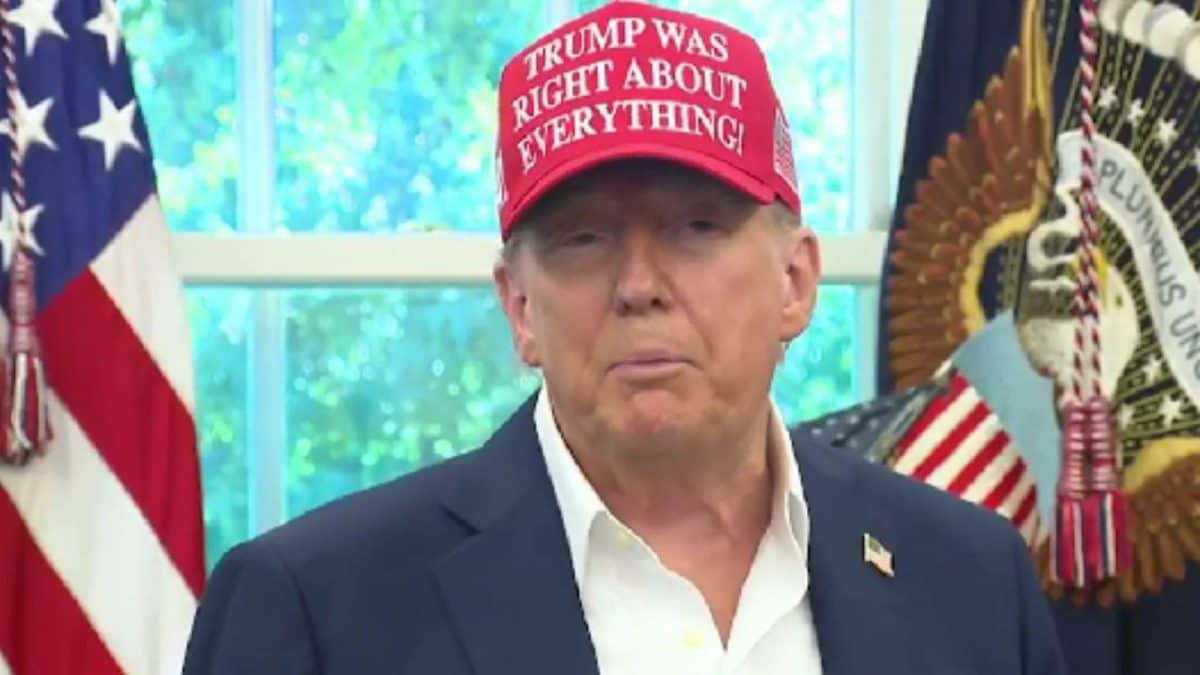Last Updated:
India’s SCO participation, even as Trump continues to slam the country’s ‘unfair advantage’ in trade, was a message: We will not be arm-twisted into choosing between East & West

US President Donald Trump. (Image: CNN)
They say a photograph speaks a thousand words, and if the recent snaps of Prime Minister Narendra Modi, laughing and chatting with Russian President Vladimir Putin and his Chinese counterpart Xi Jinping, are anything to go by, the message to the West was loud and clear—the power axis is subtly shifting away from Donald Trump’s America.
The recently concluded Shanghai Cooperation Organisation (SCO) Summit served as the perfect stage for India to tell Washington that its unfair tariffs, including a penalty of 25 per cent for buying Russiam oil, would not impact the country’s economic decisions. Flanked by Putin and Xi, PM Modi’s body language may have raised eyebrows in the White House but the carefully staged subtext was unmissable— New Delhi, Moscow, and Beijing may differ in ideology, but they’re willing to appear united under the banner of multipolarity.
Recommended Stories
India’s participation at the SCO, even as Trump continues to slam the country’s “unfair advantage” in trade, was its own form of message: The country will not be arm-twisted into choosing between East and West.
This was bad news for Trump. The US President had earlier seemed sure that he could get his way by threatening India with tariffs, forcing the country—which has been an ally in the past—to alter its decision to buy Russian oil. However, the confidence seems to be crumbling now as India chose to assert its identity through optics instead of firing salvos on social media—Trump’s favourite pastime.
While the US President’s core team of Peter Navarro, Scott Bessent and JD Vance may have stood firmly behind him, his critics have torn into him for jeopardising a carefully cultivated relationship over the years with India.
The latest criticism came from David Ignatius, columnist for the Washington Post and former Harvard Kennedy School fellow, who said the SCO summit in Tianjin was a “significant setback for the United States”.
In an interview with MSNBC, Ignatius said: “The image of Vladimir Putin holding hands with PM Modi was a sign that Putin is getting away with it. Three years into the war, he is now claiming it was the West’s fault and he has an audience of prominent world leaders, including a key person in America’s efforts to create a new, informal partnership to contain China. India’s repositioning toward Russia and China reverses diplomacy that’s been conducted since the administration of George W Bush, at least.”
Ignatius is not alone. Former national security adviser John Bolton, one of Trump’s fiercest critics, too said PM Modi’s visit to China is “bad news” for the West.
“There’s a lot of bad news here and very little good news… The West has spent decades, in particular, in trying to wean India away from its Cold War attachment to Soviet Union/Russia, buying sophisticated weapons from them…and cautioning India on the danger posed by China, which is symbolised by what’s called the Asian security quad with Japan, India, Australia and the United States… A lot of effort…a lot of effort to make India more amenable to cooperation with these countries,” Bolton said during a television interview.
About the Author

Apoorva Misra is News Editor at News18.com with over nine years of experience. She is a graduate from Delhi University’s Lady Shri Ram College and holds a PG Diploma from Asian College of Journalism, Chennai. S…Read More
Apoorva Misra is News Editor at News18.com with over nine years of experience. She is a graduate from Delhi University’s Lady Shri Ram College and holds a PG Diploma from Asian College of Journalism, Chennai. S… Read More
Loading comments…
Read More




)